Ensuring a healthy and balanced Dachshund diet is crucial for the overall well-being of our beloved furry friends! Here is what are do’s and don’ts on Doxie food!
These adorable and energetic dogs have specific dietary needs that should be met to keep them healthy and happy! So, let’s start exploring the Dachshund diet, recommended foods, and the importance of avoiding harmful ingredients. We are what we eat, and that applies to our dogs too!
What is the best diet for a Dachshund?
We know that you are wondering what should your precious Dachshunds eat? Well, let’s break it down into the important food components they need:
Dachshunds require a diet rich in protein, which helps support their muscle development and overall growth. Essential fatty acids, like omega-3 and omega-6, are also important for their skin and coat health. Additionally, vitamins and minerals play a vital role in maintaining their immune system and keeping them healthy.
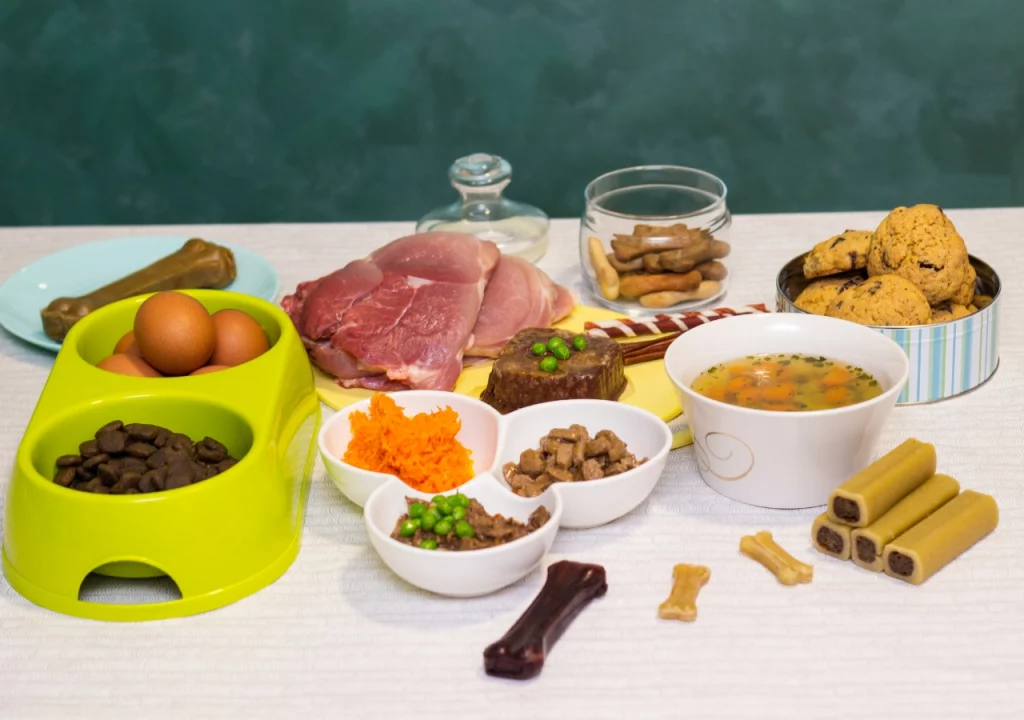
Proteins in the Dachshund diet
Dachshunds need a good source of protein, such as lean meats (chicken, turkey, beef) and fish. These protein sources provide essential amino acids that are necessary for their overall well-being! Just remember to remove any bones and fat, as they definitely don’t need extra padding around their cute little waists, and they do tend to gain weight easily!
Carbs in Doxie diet
Carbohydrates, such as whole grains and vegetables, are a great source of energy for your Dachshund. They provide the fuel needed for their daily activities and help keep them active and playful. They can benefit from complex carbohydrates found in grains like rice and oats
However, keep it in control and avoid giving them more than they need. Carbs mean energy, and they will need to spend it somewhere!
Fats for healthy Dachshund
Healthy fats, like those found in fish oil or flaxseed oil, are beneficial for Dachshunds’ skin and coat health. They can get their necessary dose of fats from sources like fish, olive oil, or even some peanut butter, just make sure it doesn’t have any xylitol, which can be toxic to dogs! And try to keep it in small amounts to avoid weight gain in our floppy ear friends!
Vitamins in the Dachshund diet
To meet their nutritional needs, Dachshunds require a variety of vitamins and minerals. Give them fruits and vegetables like apples, carrots, and sweet potatoes, and they will enjoy it!
Ensure your wiener dog is getting all the necessary vitamins through a well-balanced diet, or consider a veterinarian-recommended multivitamin. They need their daily dose of vitamin D for strong bones and lots of tail wagging, and a Vet can recommend the right portion!
How much food is enough for a Dachshund?
Dachshunds may be small in size, but their dietary needs are unique. Factors such as age, weight, activity level, and any underlying health conditions can have a role in choosing their food portions! If you have a Dachshund puppy you will need only half of the food portion!
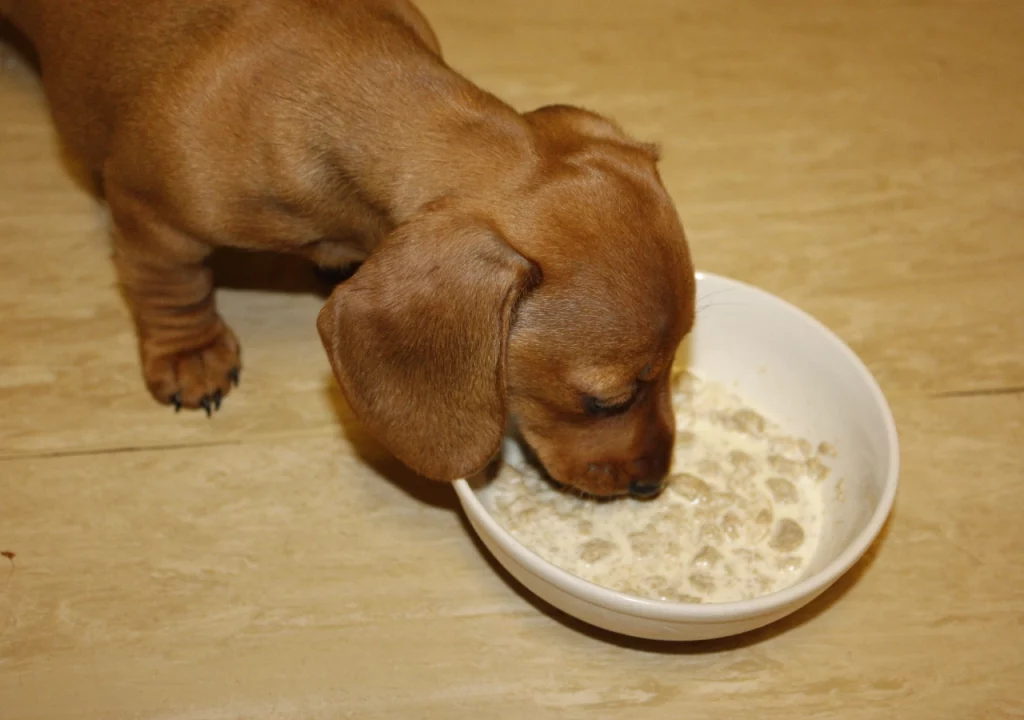
Determining the ideal caloric intake for your Dachshund is crucial to preventing obesity and other weight-related health issues.
Unfortunately, Doxies have a tendency to gain weight quickly. Be vigilant about portion control, especially if you’re feeding them homemade meals. Consult with your veterinarian to determine the correct portion size for your dog based on their age, size, and activity level.
Now, for a miniature Dachshund weighing around 10 pounds, about a half to three-quarters of a cup per day should do the trick.
For a standard Dachshund weighing around 16 to 24 pounds, throw in around one to one and a half cups of food per day, divided into two or three meals.
And for a larger Dachshund weighing 32 to 40 pounds (yes, they do exist), they’ll need about one and a half to two cups of food each day. But don’t worry, they won’t be too large for your lap!
Healthy Treats
If you enjoy treating your Dachshund, opt for healthy snacks. In fact, healthy snacks take an important place when choosing the best diet for a Dachshund. There are numerous low-calorie treats available that can satisfy their cravings without adding excess pounds. Additionally, consider using pieces of their regular kibble as treats during training sessions.
Regular Exercise
Regular exercise is essential to prevent obesity and maintain your Dachshund’s overall health. Due to their unique body structure, Dachshunds are prone to back issues, so avoid activities that involve jumping from heights. Instead, opt for low-impact exercises like daily walks and gentle playtime.
Mental Stimulation
Keep your Dachshund mentally engaged to prevent boredom eating. Puzzle toys and interactive games can provide mental stimulation, reducing the desire for unnecessary snacking.
Homemade Diet for Dachshunds
Who says you can’t be your Dachshund’s personal chef? If you’re up for it, cooking their meals at home can be a delightful bonding experience. Just make sure you know which ingredients are Dachshund-friendly.
Consider preparing some delicious meals with lean meats like chicken or beef mixed with cooked vegetables like carrots, peas, and green beans. Top it off with a sprinkle of whole grains like brown rice or oats, and you’ve got a great meal for your floppy ear prince or princess Wiener!
But hold your spatulas, my friends! Before starting that adventure, consult your vet to make sure you’re giving your Dachshund all the necessary nutrients they need.
Raw diet for Dachshunds?
Believe it or not, the raw food movement is on even in the doggo world! But before you start giving your Dachshund uncooked food, it’s important to consult your vet first. Raw diets may have their benefits, but they also carry risks.
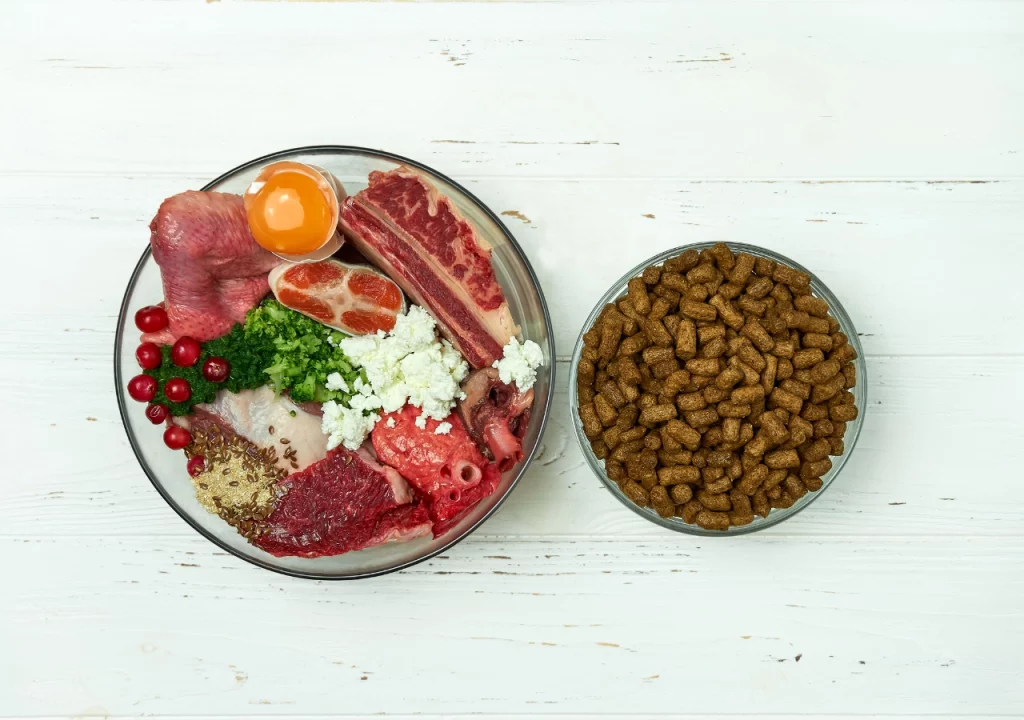
While some owners believe that raw food can provide their Dachshunds with a more natural diet, others worry about the potential for bacterial contamination or nutrient imbalances. Actually, the idea of raw food for Dachshund and dogs, in general, is to get back to their roots! Still, we should consider that the ages of breed mowing and genetic changes have given us puppies that are far away from their ancestors. And means that their digestive systems are different too!
To keep your four-legged friend safe and satisfied, always check with a professional before taking the plunge into raw feeding. Before making the switch, it’s important to know both the pros and cons of this diet. Is a raw diet the best diet for a Dachshund? Is it safe? How to know whether my dog takes enough protein? These are only some of the questions dog owners can face with.
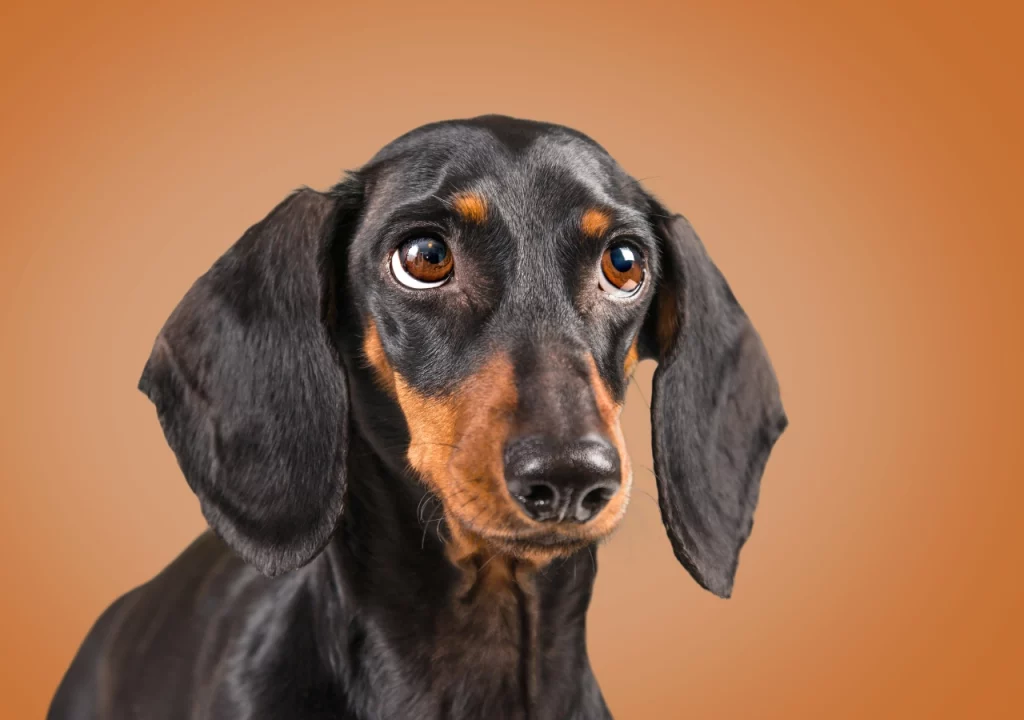
The Pros of Feeding a Dachshund a Raw Diet
Nutrition has gotten better
Some owners of Dachshunds choose a raw food because they think it is healthier. Usually, raw meals include fresh meat, bones, and veggies. Proponents say that this mix gives important nutrients in their most natural and unaffected form, which is good for a Dachshund’s overall health.
Better Digestion
Another potential advantage of a raw diet for Dachshund is its positive impact on digestion. Raw foods are believed to be easier for dogs to digest compared to heavily processed commercial dog food. For Dachshunds prone to digestive issues, such as bloating or food allergies, a raw diet might offer relief.
Shinier Coat and Healthy Skin
A raw diet can also help a Dachshund’s coat and skin look better. People who support the raw diet say that the healthy ingredients make the dog’s hair shinier and reduce skin problems. Essential fatty acids, which are found in raw foods, can help your Doxie’s skin and hair stay healthy.
Weight Management of Doxies
Due to the specific shape of their bodies, Dachshund owners can find it hard to keep their dogs at a healthy weight. A raw diet lets you control the amount of food and nutrients your Dachshund eats, which makes it easier to keep his weight in check. This is especially important to keep the breed from getting too fat and having health problems. If you had a dilemma about choosing the best diet for a Dachshund with allergies, then raw seems like the perfect choice.
The Cons of Feeding a Dachshund a Raw Diet
While there are several potential benefits to a raw diet for Dachshunds, it’s essential to consider the drawbacks and challenges associated with this feeding approach.
Risk of Bacterial Contamination
As we all know, raw meat can contain dangerous bacteria and parasites. Therefore, when choosing the best diet for your Dachshund, make sure you buy fresh meat at trusted butcheries. Chicken is one of the most dangerous types of meat that can carry bacteria like Salmonella and Campylobacter.
Difficulty in Balancing Nutrients
Ensuring a balanced diet for a Dachshund can be challenging when feeding raw. It requires careful planning to provide the right combination of protein, vitamins, and minerals. Imbalanced diets can lead to nutritional deficiencies or excesses, which can be harmful to your Dachshund’s health.
Cost Considerations
Compared to commercial dog food, a raw diet can be more expensive. The cost of high-quality meat, supplements, and additional ingredients can add up quickly. It’s essential to budget accordingly if you decide to switch to a raw diet.
Time-Consuming Preparation
Preparing raw meals for your Dachshund can be time-consuming. It involves sourcing fresh ingredients, portioning meals, and ensuring proper hygiene during meal preparation. Some dog owners may find this level of commitment challenging to maintain.
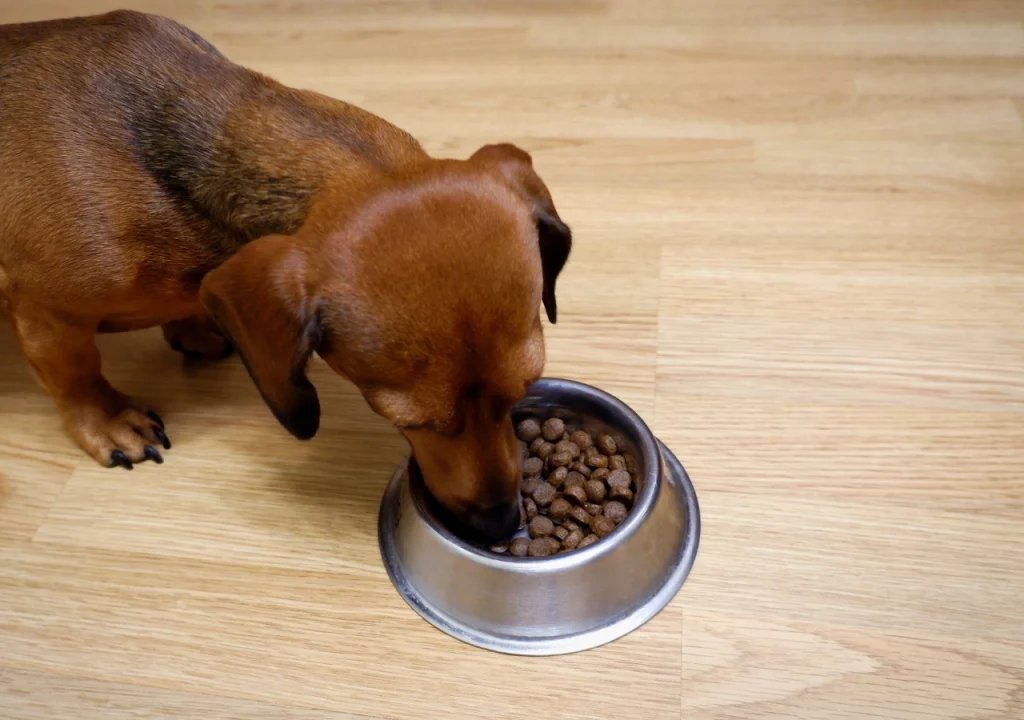
Choosing The Best Diet For A Dachshund: Wrapping Up
In the end, the best diet for your Dachshund will depend on their individual needs, size, and health. Remember to provide a balanced mix of proteins, carbs, fats, and vitamins to keep those little sausages happy and healthy. Remember to always consult with your vet to make sure you’re on the right track. And remember, a few extra belly rubs won’t hurt, either.
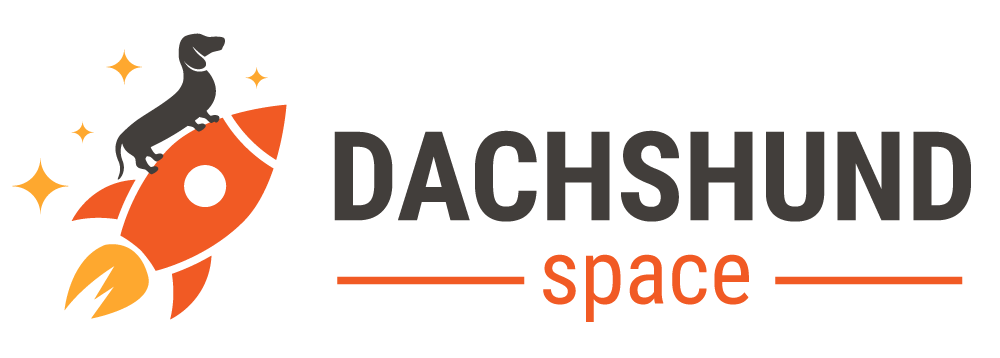
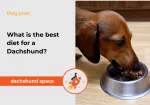
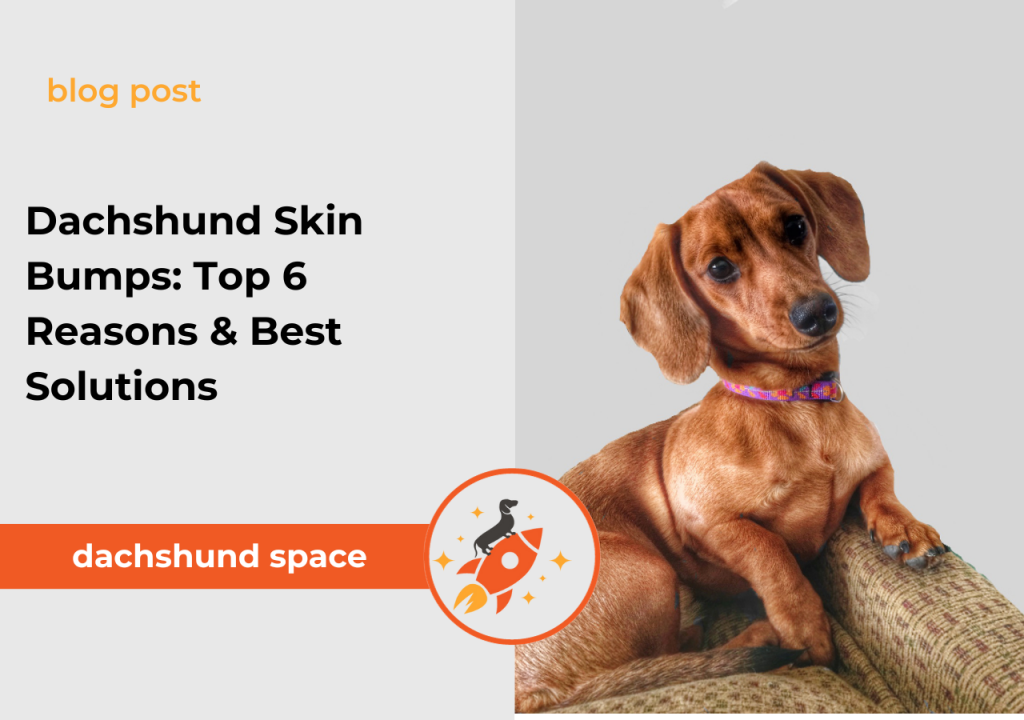
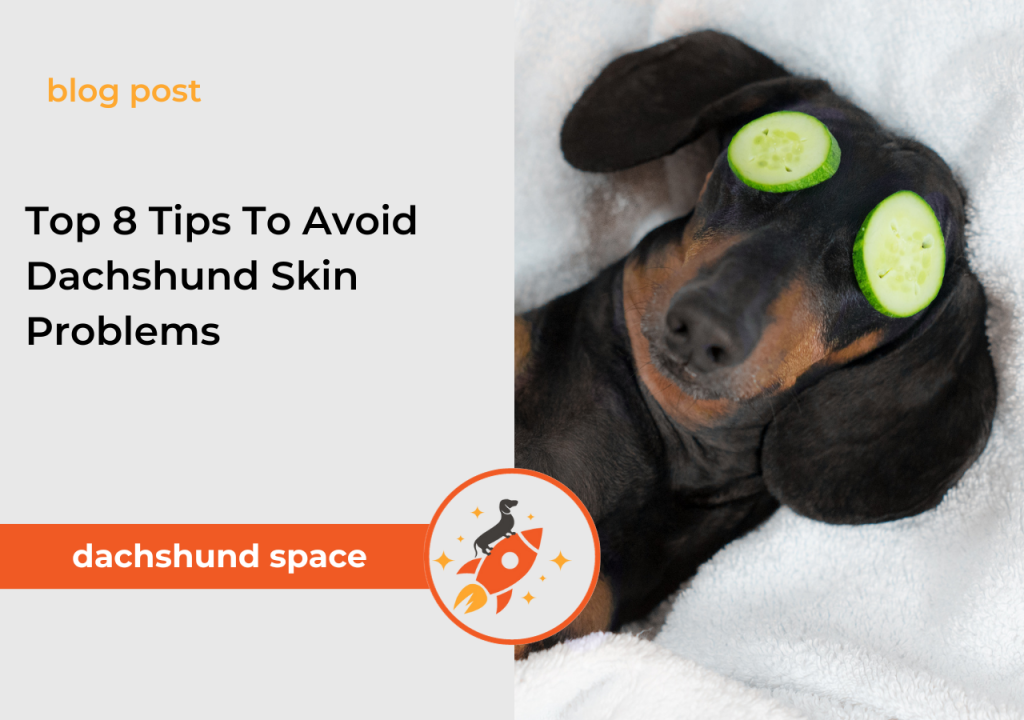
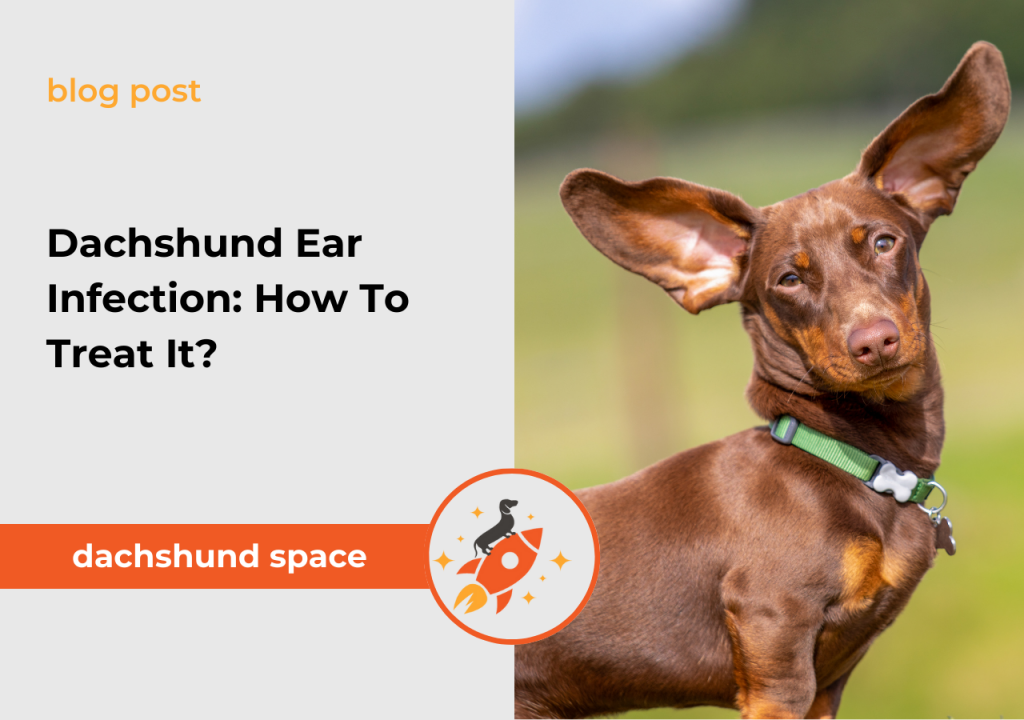
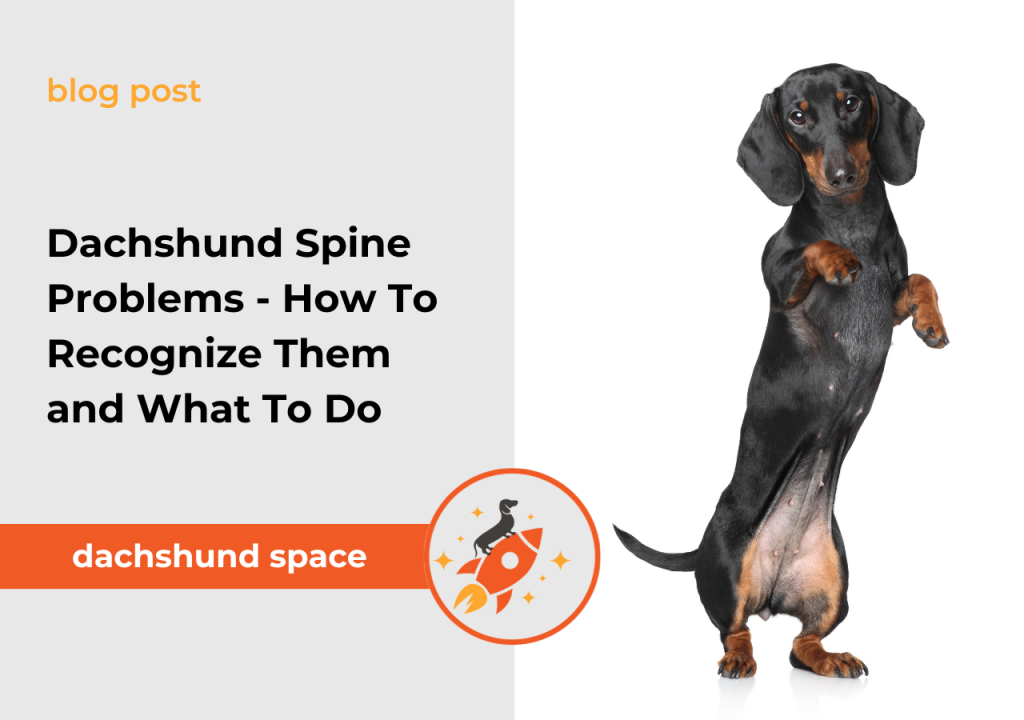




5 thoughts on “What is the best diet for a Dachshund?”